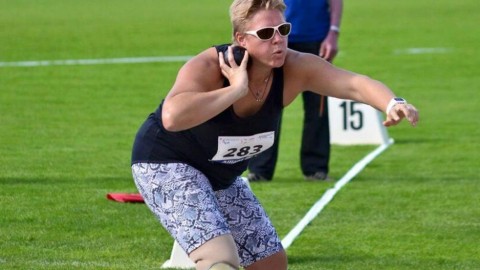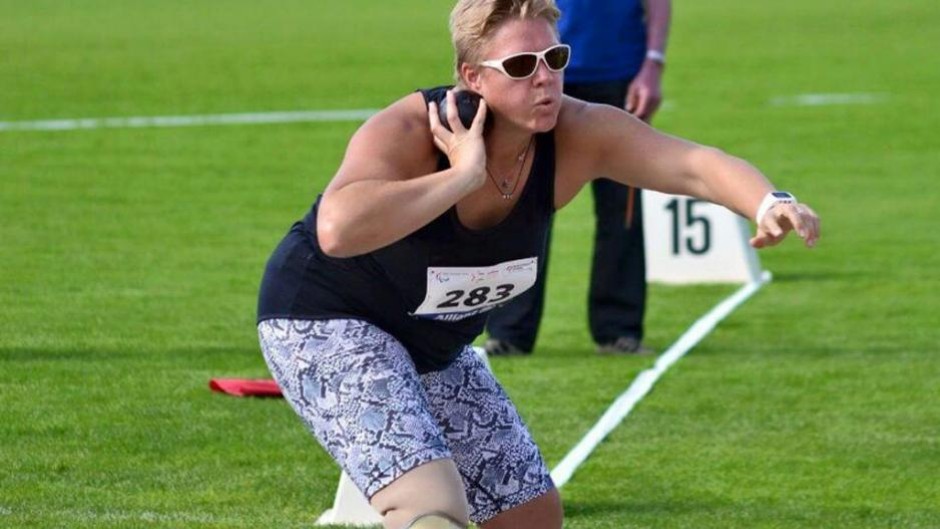
JOHANNESBURG - South Africa’s heritage of excellence in Para-sport is evident in the last couple of decades, with Atlanta 1996 heralding a sequence of five Paralympic games in which the country won 28 or more medals. Despite this sheer weight of success, local Para-athletes continue to struggle for recognition.
Maria Combrink lives the tough reality of being a Para-athlete on a daily basis. The 46-year-old, who had to have part of her lower leg amputated after a heavy fall, balances work life with a pursuit of top performances in field athletics.
“Unfortunately, the truth is, a lot of the sporting competitions and opportunities I go to, I have to pay out of my own pocket,” said the discus thrower and shot putter, when speaking to eNCA.
Combrink is proud of South Africa’s tradition and wants to see Para-athletes supported through the different parts of their journey, including the hard years of training that prepare them for the big events. “With Para-sports, I find the focus is not so much on the preparation to it. It’s the feel good, fuzzy feeling when they (athletes) come back from the Paralympics. People just want to have that nice story at the end,” the disappointment evident, as this sobering thought is exhaled.
Sport is influenced by the society in which it exists. South Africa is a tough place for people with physical disabilities and this invariably makes it tougher for Para-athletes to reach their goals. “When we look at disabilities, especially physical disabilities, it’s not a one-size-fits-all. For instance, if you are a person with a spinal cord injury, you will have many more physiological challenges.”
Logistical hardships add to the long list of hurdles. Transportation to sport venues is a challenge on its own. Facilities are often not adapted to accommodate persons and athletes with disabilities. This makes the progress of Para-athletes all the more remarkable. 100 metre Sprinter Ndodomzi Ntutu gave us a good reminder of this,
when he sped to gold in the T12 final at last year’s Commonwealth Games hosted in Birmingham.
Combrink herself is no stranger to big moments. She set a world record in April 2021 when her shot put F64 category throw was located 11.15 metres away. “It’s absolutely amazing to be able to say that I broke a world record and I’m still holding the world record. That’s definitely one of the defining moments,” declares the record’s proud custodian.
South Africa’s potential to have more record breakers in Para-sport is limitless. Why, the SASAPD National Championships hosted by Cape Town in March saw over 100 records broken. The fact that these championships barely got a mention in the media and social platforms is but a snapshot of what Para-athletes are up against in their quest for victory, on the field and in the recognition stakes.
A perennial lack of funding means less opportunities to test themselves against top competitors. “If you have that greater experience of an international competition, it completely changes the way you look at yourself as an athlete. The moment you step outside and you see the other competition, you realise how much work you need to be doing,” says Combrink.
South Africa’s most recent appearance at the Paralympic Games yielded seven medals, as the cream of the crop gathered in Tokyo during August and September of 2021. While the impact of Covid-19 on the nation’s preparations and performance in Japan cannot be understated, it was, nevertheless, the country’s poorest return in the last seven editions of the Games.
Paris 2024 offers an opportunity to improve the medal tally. The big event will be preceded by tough preparation. It’s often a lonely road for Combrink and her fellow Para-athletes. All they ask is that we, as South Africans, walk with them on the path to success, rather than taking the easy option and waiting at the finish line.
By - Kanyiso Colani

